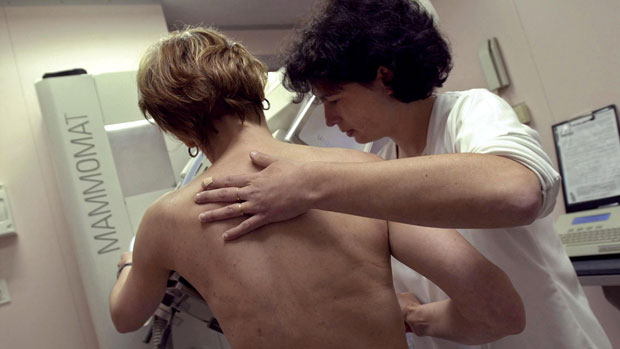Breast cancer: 'revolutionary' one-shot treatment for NHS
Intrabeam radiotherapy means patients can avoid exhausting trips to hospital for weeks of treatment

A free daily email with the biggest news stories of the day – and the best features from TheWeek.com
You are now subscribed
Your newsletter sign-up was successful
Tens of thousands of people with breast cancer could soon be offered a single shot of radiotherapy on the NHS.
The "revolutionary" treatment, called Intrabeam radiotherapy, has been given a provisional go-ahead by the National Institute for Health and Care Excellence (Nice), reports Sky News.
Nice estimates that up to 36,000 people with early stage breast cancer could benefit, with the technique being offered as soon as next year.
The Week
Escape your echo chamber. Get the facts behind the news, plus analysis from multiple perspectives.

Sign up for The Week's Free Newsletters
From our morning news briefing to a weekly Good News Newsletter, get the best of The Week delivered directly to your inbox.
From our morning news briefing to a weekly Good News Newsletter, get the best of The Week delivered directly to your inbox.
The single dose is given at the same time as surgery, meaning patients can avoid exhausting regular radiotherapy, which typically requires numerous doses over a three-week period.
"It's still a new treatment – so far only six centres in the UK have used the Intrabeam radiotherapy system to treat early breast cancer," says Professor Carole Longson, director of health technology evaluation at Nice. "Because it is still relatively new it is only right to recommend its use in a carefully controlled way."
Breakthrough Breast Cancer said the "revolutionary" treatment was "great news" for early breast cancer patients due for breast conserving operations. Sally Greenbrook, senior policy officer at the charity, said it would not only cause less hassle for patients but it would also save the NHS time and money too.
"As this is a new technology, patients will need to be made aware of the pros and cons before going ahead," she said. "However, this technique can greatly reduce the disruption, stress and inconvenience of what for some people can be over 15 additional trips to and from hospital as well as saving the NHS money and time."
A free daily email with the biggest news stories of the day – and the best features from TheWeek.com
Marcelle Bernstein, a 71-year-old writer and tutor who was treated at a private hospital pioneering the therapy, told the Daily Mail it was a "godsend" that enabled her to be back to work within weeks.
Every year, around 41,500 women and 300 men in England are diagnosed with breast cancer.
-
 Why the Bangladesh election is one to watch
Why the Bangladesh election is one to watchThe Explainer Opposition party has claimed the void left by Sheikh Hasina’s Awami League but Islamist party could yet have a say
-
 The world’s most romantic hotels
The world’s most romantic hotelsThe Week Recommends Treetop hideaways, secluded villas and a woodland cabin – perfect settings for Valentine’s Day
-
 Democrats push for ICE accountability
Democrats push for ICE accountabilityFeature U.S. citizens shot and violently detained by immigration agents testify at Capitol Hill hearing
-
 A real head scratcher: how scabies returned to the UK
A real head scratcher: how scabies returned to the UKThe Explainer The ‘Victorian-era’ condition is on the rise in the UK, and experts aren’t sure why
-
 How dangerous is the ‘K’ strain super-flu?
How dangerous is the ‘K’ strain super-flu?The Explainer Surge in cases of new variant H3N2 flu in UK and around the world
-
 The ‘menopause gold rush’
The ‘menopause gold rush’Under the Radar Women vulnerable to misinformation and marketing of ‘unregulated’ products
-
 How the care industry came to rely on migrant workers
How the care industry came to rely on migrant workersThe Explainer Government crackdown on recruiting workers abroad risks deepening care sector crisis, industry leaders warn
-
 Could medics' misgivings spell the end of the assisted dying bill?
Could medics' misgivings spell the end of the assisted dying bill?Today's Big Question The Royal College of Psychiatrists has identified 'serious concerns' with the landmark bill – and MPs are taking notice
-
 Washwood Heath: Birmingham's pioneering neighbourhood health service
Washwood Heath: Birmingham's pioneering neighbourhood health serviceIn the Spotlight NHS England chair says there is a 'really good argument this is the model for the future'
-
 The UK's first legal drug consumption room
The UK's first legal drug consumption roomThe Explainer 'Potentially transformative moment in UK drugs policy' as The Thistle opens in Glasgow
-
 How can the UK solve the adult social care crisis?
How can the UK solve the adult social care crisis?Today's Big Question New commission announced to turn our buckling care sector around: yet more delay or finally a way forward?